 Have a Successful Pregnancy After Recurrent Pregnancy Loss - AIM Women's Wellness Center
Have a Successful Pregnancy After Recurrent Pregnancy Loss - AIM Women's Wellness Center(401) 441-5336Coronavirus (COVID-19) Update: Coronavirus UpdateDear patients,We wanted to update you on the state of the treatment of pandemic and fertility COVID-19. We know that you have put your faith in us to help solve a real medical problem: infertility. We pledge to continue to provide the quality care you expect from us, and our team is working with the New England Child Care and Hospital to ensure that the community has the medical resources to combat COVID-19. Because of this and to keep our patients healthy, we are carefully evaluating the community and the state while advocating for our patients while making decisions about patient treatment. It is a process in constant evolution, so please contact us as questions arise when the treatment begins. We are limiting the number of patients and partners in the office at any time and using telehealth. We would like to address websites that can help you as this process develops, such as our professional organization. During this difficult time, we continue to provide telephone visits to our patients. This includes new patients and follow-up patients. Call to schedule a phone appointment. We are offering limited diagnostic tests right now. We are still working with our urgent patients to ensure they receive the treatment they need. In addition, our staff is available for questions, drug recharges and any problems. We recognize that this process is stressful for all of us, especially for our infertility patients. Continue to follow the guide to wear masks, wash hands and social distance. We're here to support you any way we can. Thank you for your understanding. Team at the Women's Children's Fertility Center Find Support, Success and Sydney After Five Miscarriages By Danielle and her husband, Di, did everything right. They started trying to have a baby together when Danielle was 30. They went to preconception appointments and they pulled everything out of their doctors. They started taking all the right vitamins. They didn't expect any trouble, especially because Danielle has a son of an earlier relationship, whom he had no problems. But Danielle and Di would face multiple abortions, emotional trauma, medical problems, and many unanswered questions on their journey to become parents together. Expecting an easy pregnancy When Danielle and Di got pregnant quickly, they thought it was a sign that this would be an easy pregnancy. The couple went enthusiastically to their first ultrasound at seven weeks. The ultrasound technician found the baby's heartbeat, but, rather carelessly, he mentioned it was slower than expected. When Danielle asked that, he had little information. "No one really said what that meant," he recalls. "They told us the doctor would call me. When he did, he still didn't make it look like it was a problem." Without further information, Danielle was told to return in a few weeks to enter. Since no one in the office seemed worried, it wasn't, and he thought it was all right. Unfortunately, that wasn't reality. The couple returned to the clinic to know they had lost the baby. The heartbeat was no longer slow, it was not present. "We had no idea what could happen to us," says Danielle. I'd heard people had abortions, but I didn't think it would happen to me. We were young, healthy, free from any underlying problem. But he did. Danielle's experience is one of many women. Miscarriages occur in 15 to 20 percent of all pregnancies. Losing faith After Abortion After recovering from abortion, both emotional and physical, Danielle and Di started again. This time, things weren't that easy. It took almost six months before a positive pregnancy test was done. "We didn't even make the first date until I was eight weeks pregnant," remembers Danielle. "We wanted to go beyond where we were with that first loss." Trying to start with a clean board was important to the couple. They also chose another obstetric provider, with a new ultrasound technician who was ecstatic to let them know that their baby had a strong and perfect heartbeat. Danielle and Di were excited and grateful. The couple continued to do a blood test to determine if the baby had any anomaly, which were all negative, and found that they were having a small girl. They chose to name their Faith. Apart from anxiety and some morning illness, pregnancy was unreachable and healthy. The couple enthusiastically expected Faith's arrival, sharing her joy with friends and family. Danielle, who worked in a hospital, was pregnant about 20 weeks when she worked an extra shift – overnight – and began to notice that the baby was not moving as much as she had been. Thinking he was paranoid, Danielle talked about his options with his coworkers. They discussed going to the maternity ward at work, maybe the emergency room and so on. Ultimately, Danielle worked the shift and then called his doctor, who he was going to see later on the day anyway. He told him to come early, just to relieve his nerves. Instead, things began to unravel quickly. Danielle's doctor couldn't find Faith's heartbeat. Danielle had an ultrasound and remembers to know at the time that he had another abortion. "They pulled the baby on the screen and I could say," remember. "There was no movement, there was no beautiful color flow. It was nothing. My baby was gone. "Because Danielle was so far away in the pregnancy, she had to hand over the baby. Going forward without answers Di and Danielle decided to do an autopsy to try to identify what, if anything, they could learn from Fe about why abortion occurred. Danielle also had extensive work. Unfortunately, they didn't learn any of the evidence or the autopsy. "After the tests, my doctor didn't think I needed to look at it anymore," says Danielle. "To live through what I did once was traumatic, to live through it twice was more than traumatic. I didn't feel comfortable with your answer." The couple found a new obstetrician who recommended that they visit the Women ' s Child Fertility Centre, specifically. Dr's experience. Wheeler is not all they found at the Children's Hospital. Danielle and Di met with Dr. Wheeler to discuss your options and, once again, try to identify what was happening and how to prevent it. Dr. Wheeler and his team did a full job, but they didn't learn anything new. But that didn't mean it was the end of the road for Danielle and Di.Dr. Wheeler suggested a simple plan: baby aspirin and progesterone suppository. To Danielle, this didn't seem enough, but a Fertility Center nurse told Danielle that she had seen him work. The nurse also recommended acupuncture. According to , acupuncture has been shown to promote relaxation. Support and puppy love search More than relaxation, Danielle and Di needed a space to talk about their experience. It is understandable that both had a very difficult time to process their abortion. The couple found one for parents who have experienced abortions and child death. "We met other couples who were like us. They were healthy and really wanted to have a baby, and then they lost their babies," says Danielle. "It made us feel alone and that nothing is truly bad with us. That we didn't deserve that to happen to us." The couple went to the group every Wednesday for a year. Danielle says he gave him a place to remember Faith. "After a while people expect me to move on. They think the baby was never here, so it should be easy to move on." It was as deep as losing any other loved one because faith was loved, says Danielle. Having a space to talk about abortion was crucial to Danielle and Di.In addition to the support group, the couple also decided to get a dog. After the loss, Danielle and Di had a strong urge to nourish and care for something. They settled in a mini bulldog, called Mina, the Portuguese word for the girl, who became Danielle's constant companion. Celebrating success, cautiously During the coming year, Danielle followed Dr. Wheeler's guidance. Acupuncture and low-inflammatory diet also began. During that year, Danielle had three chemical pregnancies, which means that by the time he entered the office for an ultrasound, he had been malhumorated. These very early pregnancy losses usually occur before the fifth week of pregnancy. Despite these early losses, Danielle continued to work with Dr. Wheeler. "It was hard to focus on anything," he says. "After five losses, you cannot have your mind in one thing. But Dr. Wheeler kept us in our plan." That plan finally helped Danielle and Di become pregnant once again. The couple was hesitant to celebrate or get excited because of the many disappointments they endured. But at five weeks they entered the Women ' s Child Fertility Center for ultrasound, almost three weeks before a typical OB practice performed one. From there he kept going into the office and saw Dr. Wheeler at least every week. Dr. Wheeler was reassuring but realistic," says Danielle. "It kept me focused on right now. She kept reminding me that everything looks great today and that's the most we can do. Today, the baby is great. The couple remained cautious, not having a baby shower, the genre reveals or tells many people. Danielle said that Mina, her puppy, and the TV show The Walking Dead were the only things that kept her anxiety at bay during this time. Those two things, in combination with Dr. Wheeler's care, seemed to work for Danielle and Di. The pregnancy progressed as normal and once they were beyond the 20-week mark, which is when the last abortion occurred, the couple finally told their families and soon they were showered in love and baby gifts. "We don't get the labels or buy anything on our own," he recalls. "This baby was so wanted, not only for us, but for all those around us."Sadly, Mina would not do so through Danielle's full pregnancy. Mina had some late medical complications in Danielle's pregnancy. The puppy developed lymphoma and died shortly before the baby was born." That dog came to our life when we needed it more and then to the right as we were about to have this baby, she left our lives," remembers Danielle. "She was there for us and I can't explain it, but it's almost as if she served her purpose." Welcoming Sydney and Buying After four years, five abortions and the loss of a special friend, Danielle and Di finally welcomed Sydney Faith in the world in December 2018. Sydney is a healthy baby who, despite some last-minute purchases for a crib, has everything she needs. While he was in the hospital recovering from the caesarean section, Di was running away buying things," remembers Danielle, laughing. "At the time he was born, we have so many gifts and flowers, and people were so loving and generous. People who register and want to meet her. We feel love."Danielle believes that focusing on the present and finding activities that make you happy are important to anyone who deals with similar issues. Changing focus to things that make you feel good and you can control are key, he said. "If you focus on everything that's going on wrong, you're making it take longer. Emotional stress makes it longer," says Danielle. Yes, you have the right support and treatment, but you have things that make you feel good emotionally. Ready to start treatment? We're here to help. Contact us today in or contact us Women & Infants Fertility Center90 Plain Street Providence, RI 02903 Telephone: Stay connected Follow us on social media
Pregnancy After Sscarriaje: Answers to Your Questions Pregnancy may be a great moment of joy, but it may also be full of concern and even sadness — especially if you have previously experienced an abortion. It is normal to feel a range of emotions after loss. And although you can't listen to your friends talking about it about coffee, abortion is actually relatively common, so it's not just in your feelings. There's good news here, though. Most women who experience miscarriage will continue to have a healthy baby. The journey is not always a straight line, but this is what you need to know about conceiving again and having a healthy pregnancy after abortion. Some of the pregnancies end in abortion in the first quarter or before the 12th week of pregnancy. Another woman who is missing early in the second quarter, between weeks 13 and 19. And it may be that even pregnancies end up in miscarriages, but many happen before a woman knows she's pregnant. Fear is caused by things like: Some abortions happen abruptly — you can see blood and then quickly pass the tissues of pregnancy. Others, such as miscarriages, may occur without symptoms. You may not discover that there is something wrong until you visit your doctor for an ultrasound appointment. No matter how it happens, you can experience intense feelings of pain, anger or sadness. You may even feel numb at first but continue to experience a variety of feelings later. It may take several weeks to a month or more to get your body back from abortions. The timeline is individual, depending on the type of abortion you experience and whether or not you need medical intervention, as a help to pass the fetus. Immediately. You may be surprised to know that you may become pregnant after an abortion without even having a "normal" menstrual period. How? Well, after you're wrong, your body starts the process of returning to its usual reproductive routine. This means you will experience ovulation before you get another period. Ovulation can occur as soon as two weeks after your abortion. If you become pregnant during this first ovulation, you can see that positive sign in the pregnancy test before what you thought possible. There are several who support the idea of becoming pregnant within 1 to 3 months after abortion. One revealed that getting pregnant within 3 months of a miscarriage may have a better result — lower risk of a later abortion — than waiting longer. One theory is that an earlier pregnancy can "press" the body to accept a future pregnancy. All this is said, your doctor may have guidelines for you to follow specific to your health and your abortion. For example, if you had a D and C procedure, your doctor may suggest that you wait several months before trying again give your uterine coating a chance to recover healthy levels. If you have had repetitive abortions, your doctor may want to perform some tests to determine if there is a root cause before trying again. Emotionally, you may not feel ready to drown again in trying after experiencing the loss. So, while physically you can get pregnant right away, there are several situations that can justify waiting. In the end, you should wait until you feel physically and emotionally ready, but there is no reason to wait longer once you receive your doctor's head. Related: Most women have healthy pregnancies after experiencing an abortion. In fact, the general risk of experiencing miscarriage — does not increase if you have had a loss. However, around women experience what is called recurrent abortions, or two or more involuntary abortions. Repeated abortions can be caused by things such as blood clotting problems, hormonal problems, certain autoimmune disorders, high blood sugar and polycystic ovary syndrome. If you have had two abortions, your risk of experiencing other surges, according to the Mayo Clinic. After three consecutive losses, the risk of another abortion rises to . For this reason, the recommendations you have tested if you experience three or more abortions in a row. Be sure to work closely with your doctor if you experience a recurring pregnancy loss. While even repetitive abortions may be of unknown cause, there are certain health situations that can put a greater risk of loss. If you can determine what they are, the treatment for the underlying cause can help you become pregnant. Tests may include things like: Once again, you may never discover the exact cause of your losses even after the tests. Although this may be worrying and annoying, the good news is that even after three unfaithful abortions, around couples continue to have a successful pregnancy. Related: It is important to understand that abortion cannot necessarily be avoided. Some of the losses occur due to what are called chromosomal abnormalities. Women over 35 are also more likely to have miscarriages because eggs tend to have more chromosomal abnormalities with age. However, following a healthy lifestyle can help foster a healthy pregnancy. While dealing with all physical things, also make sure you enter with your emotions. It is completely normal to feel a variety of feelings during pregnancy after abortion. And although there is no right or wrong way to feel, you might consider seeking help if you experience anxiety and/or depression. An authorized therapist can help you navigate through the many emotions you feel and offers tools to help you cope. You can also continue these conversations with your partner or close friend or family member. Pregnancy after abortion may not be what you expect. You may want to feel excited and happy, but end up feeling guilty or sad instead. Maybe you're full of anxiety about abortion again. Or maybe you're just taking it all one day at a time. Whatever you're going through, take your time and give yourself some grace. Some women find comfort in referring to their new pregnancy and the baby as a "." This term has been for a while and is quite popular online and social media. In short: A baby of the rainbow is the colored light after a dark and stormy time of loss. Using this term can help you rethink your experience and honor both the baby you lost and the baby you carry. Of course, you can also feel some guilt or pain in celebrating the birth of a rainbow baby. Mixed emotions are definitely part of the game. You don't have to go through this for yourself. Seriously. Your risk of anxiety and depression, particularly postpartum depression, is slightly after experiencing early pregnancy loss. It's a lot to process, so contact to get help if you need it. Remember: There is no right or wrong way to feel about your abortion. The same happens when you are pregnant again after loss. For most women, the chances of a full-term pregnancy and knowing your baby rainbow are in their favor. No matter what happens, though, he knows you're not alone. To reach friends and family to support him when you need to. And if you experience repeated losses, contact your doctor. You may have an underlying health condition that needs treatment. Last medical review on November 13, 2019 Read this next set of words

5 or More Miscarriages | Prevent Miscarriage
A successful pregnancy after recurrent miscarriages - Case Studies
Journey Of Mother Hood : Recurrent Pregnancy Loss / Recurrent Miscarriages / Recurrent Abortions - Seeds IVF & Fertility Centre
Ask Lenore ~ Recurrent Miscarriage ~ Causes, evaluation, and treatment ~ Medscape Women's Health 1998 May;3(3):2 (ISSN: 1521-207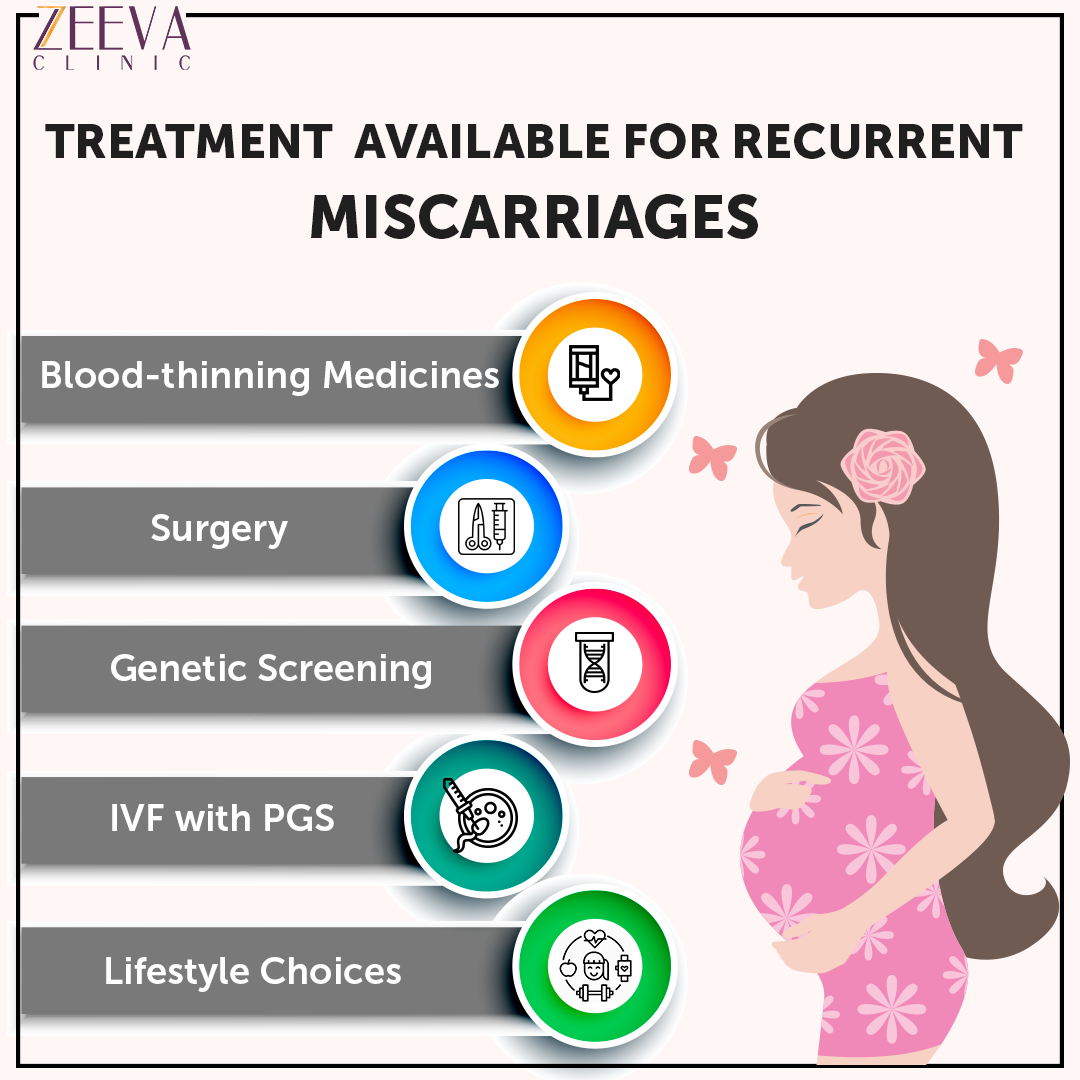
Recurrent Miscarriage — Causes, Symptoms, and Treatment | by Zeeva Clinic | Medium
Recurrent Pregnancy Loss
Dr.Sankar DasMahapatra:: Recurrent Miscarriage Treatment | Gynaecologist & Obstetrician | Laparoscopic Surgeon | Infertility Specialist | Newtown Kolkata | SaltLake Kolkata | Kolkata West Bengal India
Pregnancy After Miscarriage: From Risks to Rainbow Babies
Pregnancy after Recurrent Miscarriage | The Happy Baby Project
5 or More Miscarriages | Prevent Miscarriage
PDF) Recurrent miscarriage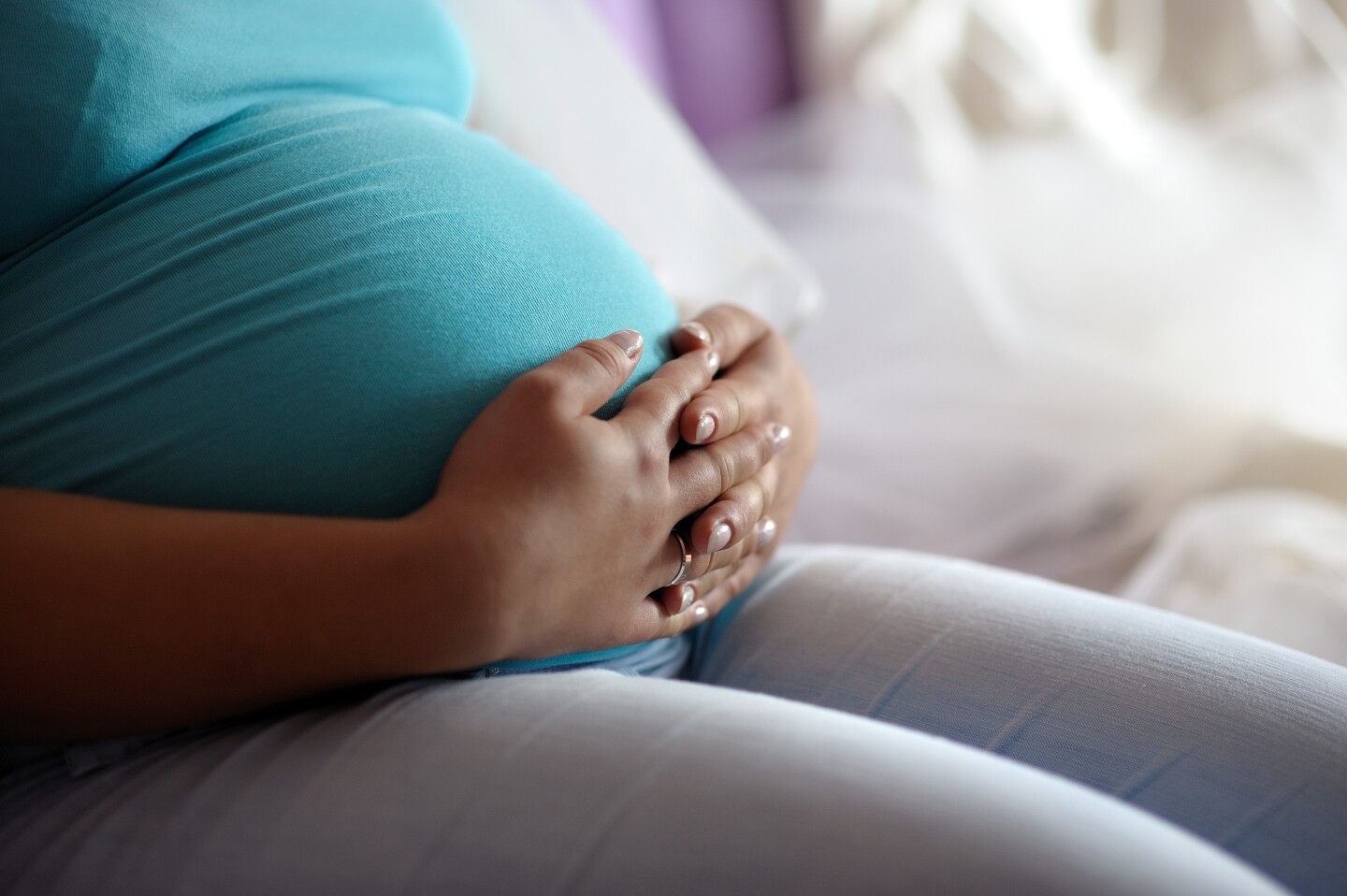
Diabetes drug may also help prevent recurrent miscarriages
Journey Of Mother Hood : Recurrent Pregnancy Loss / Recurrent Miscarriages / Recurrent Abortions - Seeds IVF & Fertility Centre
Success After Five Miscarriages | Women & Infants Fertility Center | RI
5 or More Miscarriages | Prevent Miscarriage
Genetics of recurrent pregnancy loss among Iranian population - Moghbeli - 2019 - Molecular Genetics & Genomic Medicine - Wiley Online Library
PDF) Successful pregnancy outcomes with thyroxine treatment in euthyroid women with positive thyroid autoantibodies and recurrent miscarriage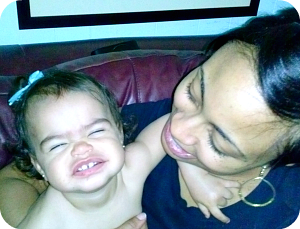
Success Story: Cassandra's Successful Pregnancy After Recurrent Miscarriages - Natural Fertility Info.com Natural Fertility Info.com
Overcoming Recurrent Miscarriage: A Success Story | WINFertility
recurrent-pregnancy-loss — The Fertility Tribe | Pregnancy After Loss Support — The Fertility Tribe | Infertility Support
Recurrent miscarriage - Wikipedia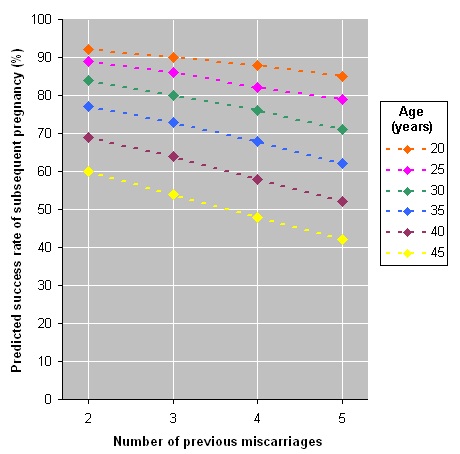
Evaluation of recurrent miscarriage - Differential diagnosis of symptoms | BMJ Best Practice US
Evaluation and treatment of recurrent pregnancy loss: a committee opinion - Fertility and Sterility
Management of recurrent miscarriage - Sugiura‐Ogasawara - 2014 - Journal of Obstetrics and Gynaecology Research - Wiley Online Library
5 Myths About Recurrent Miscarriage — Seleni - Maternal Mental Health Institute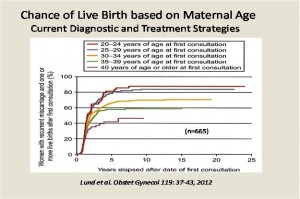
Chance For A Live Born Child After Miscarriage « Fertility Associates of Memphis
Recurrent miscarriage and early pregnancy: learning from women's experiences - Evidently Cochrane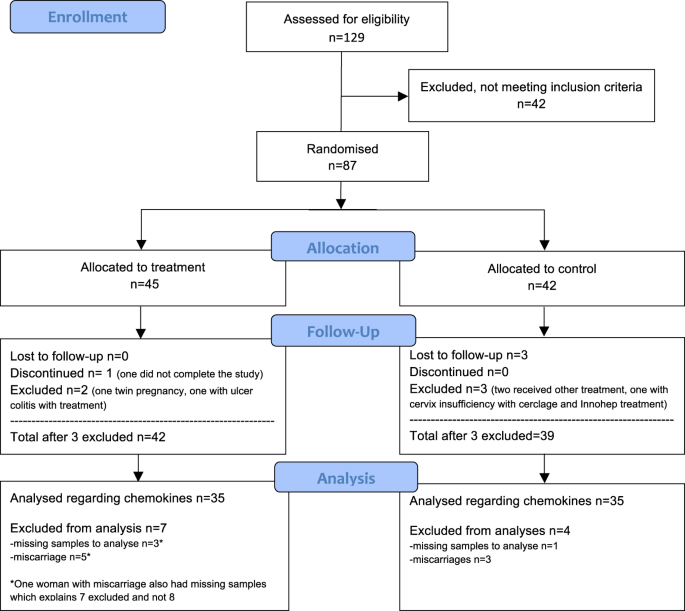
Low-molecular-weight-heparin increases Th1- and Th17-associated chemokine levels during pregnancy in women with unexplained recurrent pregnancy loss: a randomised controlled trial | Scientific Reports
Causes and treatment of recurrent miscarriage | Top Doctors
Evidence-based investigations and treatments of recurrent pregnancy loss - Fertility and Sterility
Recurrent Miscarriage - how to help!
RACGP - Recurrent pregnancy loss
My four miscarriages: why is losing a pregnancy so shrouded in mystery? | Pregnancy | The Guardian
Recurrent miscarriage and early pregnancy: learning from women's experiences - Evidently Cochrane
Treating Recurrent miscarriage With IVF - Successful Pregnancy after 3 Miscarriages - YouTube
Recurrent Miscarriage and MTHFR | Proof is Here - MTHFR.Net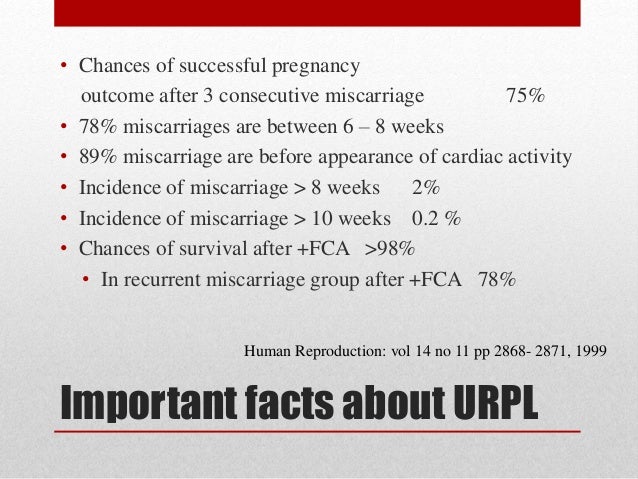
unexplained Recurrent miscarriages .. practical approach
Recurrent miscarriage – causes & treatments | Infertility Aide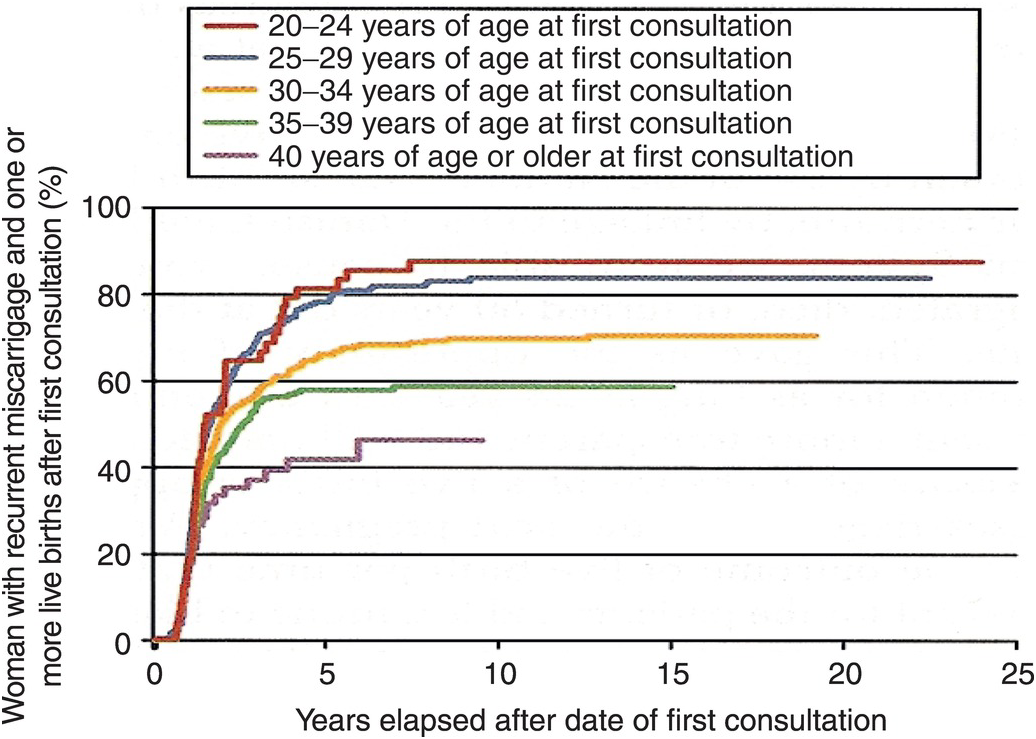
Recurrent early pregnancy loss (Chapter 59) - Clinical Gynecology
Success after recurrent chemical pregnancies | Recurrent Chemical Pregnancies
 Have a Successful Pregnancy After Recurrent Pregnancy Loss - AIM Women's Wellness Center
Have a Successful Pregnancy After Recurrent Pregnancy Loss - AIM Women's Wellness Center


































Posting Komentar untuk "recurrent miscarriage successful pregnancy"